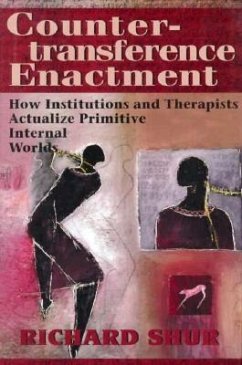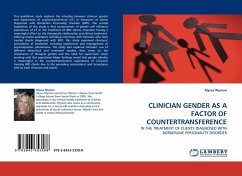Opening a Pandora's box, Richard Shur shows how countertransference enactments embedded in the structures and practices of hospitals support injurious forms of treatment. Contemporary psychodynamic thinking makes it impossible to regard these institutional procedures simply as isolated errors. These countertransference reactions, which disguise, ward off, or discharge tensions within the staff, play a crucial role in an institution's psychological equilibrium, undermining therapeutic change. Effective hospital treatment of severely regressed patients demands that staff members contain and psychologically process the highly disturbing emotions, impulses, and anxieties that emerge in this work. Maladaptive responses to primitive tensions can be seen as unfortunate but potentially useful complications of the treatment process. The understanding and skills to be gained in learning to cope with these complications are applicable to a wide range of clinical problems encountered in institutions. Not only can unconscious tensions infiltrate any hospital procedure and transform it into a channel for enactment, but the same is true for any therapy session as well. As Peter Giovacchini describes in his chapter, countertransference enactments also powerfully mold individual treatment.
Hinweis: Dieser Artikel kann nur an eine deutsche Lieferadresse ausgeliefert werden.
Hinweis: Dieser Artikel kann nur an eine deutsche Lieferadresse ausgeliefert werden.








